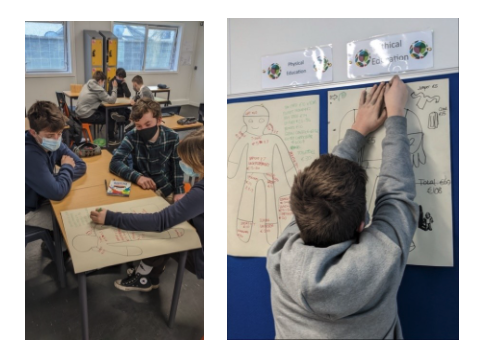By Zoe Brennan, Second Year Student Harold’s Cross ETSS
Migration is an important theme explored as part of Ethical Education both at Junior and Senior cycles. The aim is to enhance students’ understanding of this topic and critically explore issues such as how the media reports on migration in different contexts. The Junior Cycle curriculum also invites students to analyse Direct Provision in Ireland in the context of Human Rights. The following is a reflection by Zoe Brennan, a Second Year student from Harold’s Cross Educate Together Secondary School, after having completed Strand 6 of the Junior Cycle Ethical Education curriculum: Migration.
“Before the Migration module, I found that I did not know a lot about the topic. As someone who lives a very comfortable middle-class life, I felt disconnected and rather uneducated on the struggles faced by migrants living in my country. Something I found particularly shocking was the portrayal of migrants in various publications. In class, we looked at multiple headlines of newspapers and magazines in the UK and Ireland. Common themes for the subject matter of these articles was, of course, migrants but the portrayal seemed aggressive and almost inhumane. This was the opposite of what I would have expected from established newspapers. The level of discrimination is most definitely not what one would expect in 2022; a time in which discrimination based on race and ethnicity is supposed to be frowned upon. Yet, horrible headlines portraying living people as something that simply needs getting rid of is allowed to be widely consumed by the public. But if that’s how they are portrayed by the media, how are they treated in Ireland?
This question was answered when I began to learn about the direct provision system in which asylum seekers are housed. This system soon presented its many flaws, and it became clear to me that the entire system was badly in need of reform and update. My main issues with this system were the funds given to residents of direct provision and the conditions in which they live. €38.60 is the allowance given to an adult each week for expenses and though this does not sound like an extremely small sum of money, when you think about the weekly expenses of an adult, the number increases significantly.
Depending on what direct provision centre one stays in, the housing can range from a low-cost hotel to a mobile home. The one thing these all have in common is that they house many people at one time, with inadequate space for all. As an asylum seeker in Ireland living through the direct provision system, you could be living in a small room with minimal privacy and space with people you have never met before. This is humiliating for anyone to have to go through, let alone live in.
Overall, I found this module to be extremely enlightening and highlighted problems within my country that I was not aware of.”

Links to the theme of migration:
Junior Cycle Ethical Education Curriculum
Senior Cycle Ethical Education Curriculum
Resources on migration:
Migration & Refugees Plan International Teacher Guide, Powerpoint and Student resources
Amnesty International Migration Resource
GOWC Beyond borders toolkit to explore Refugee and Migration
Many more resources on migration and Direct Provision under the Ethical Education Resource bank for second-level teachers.
